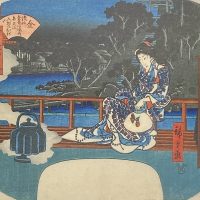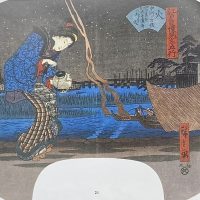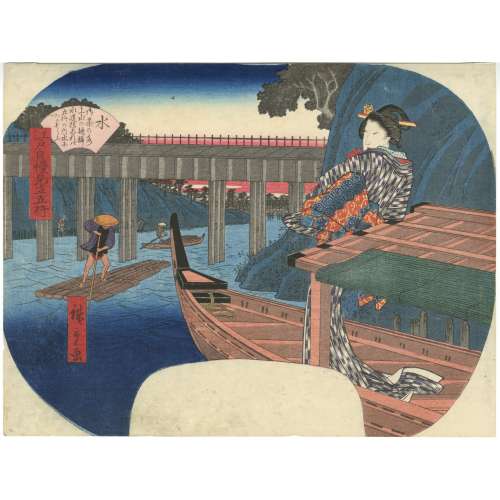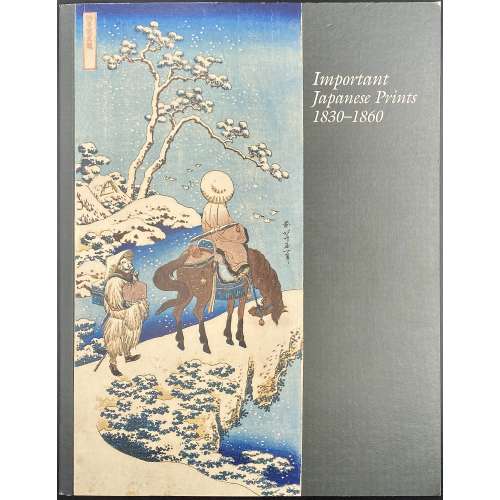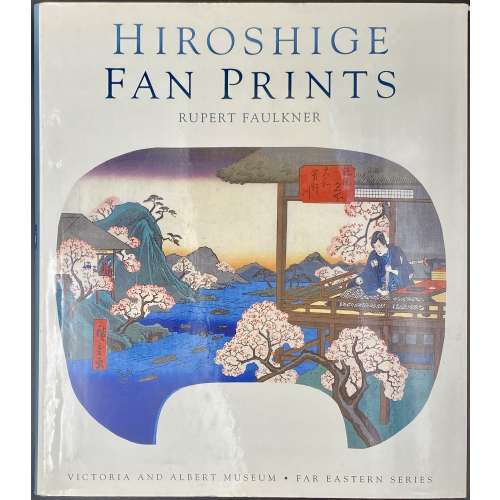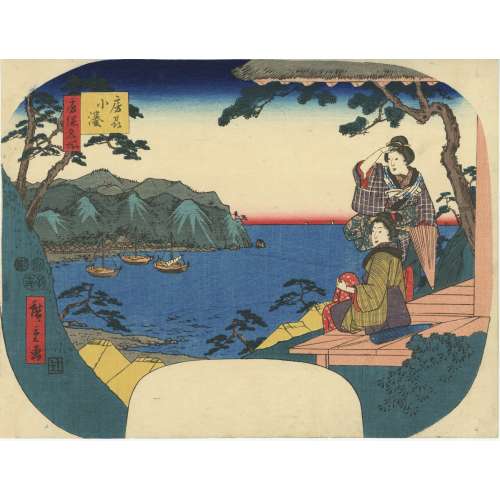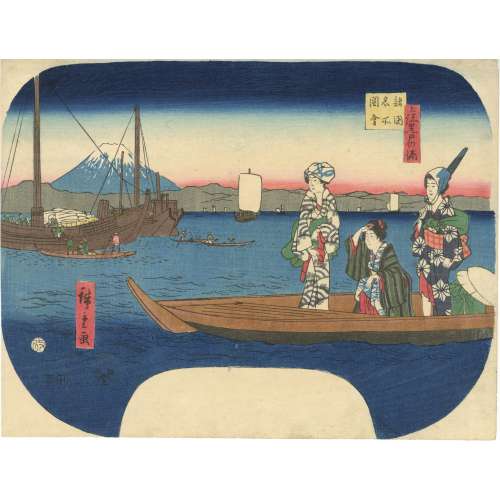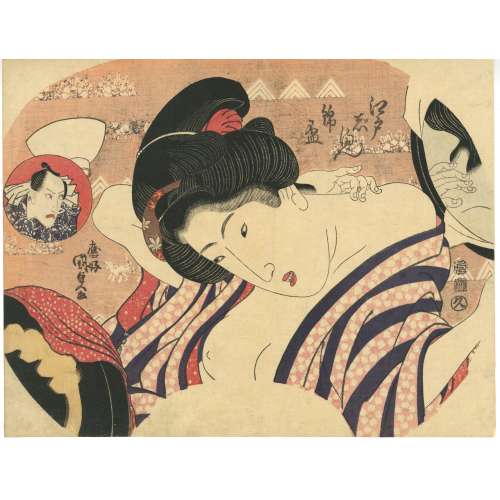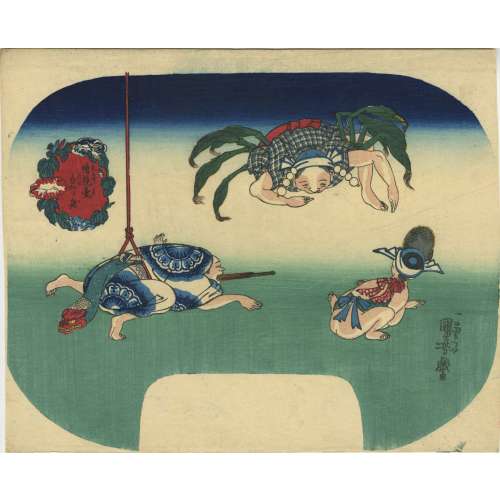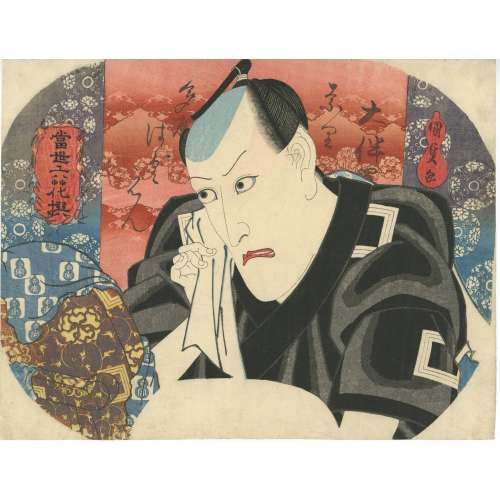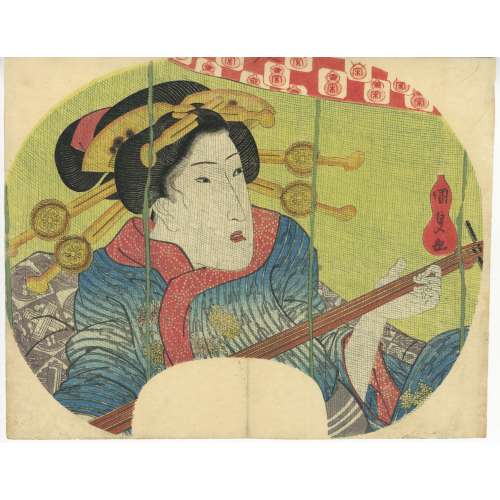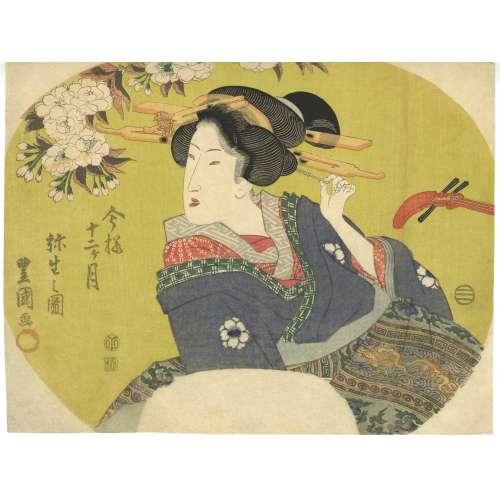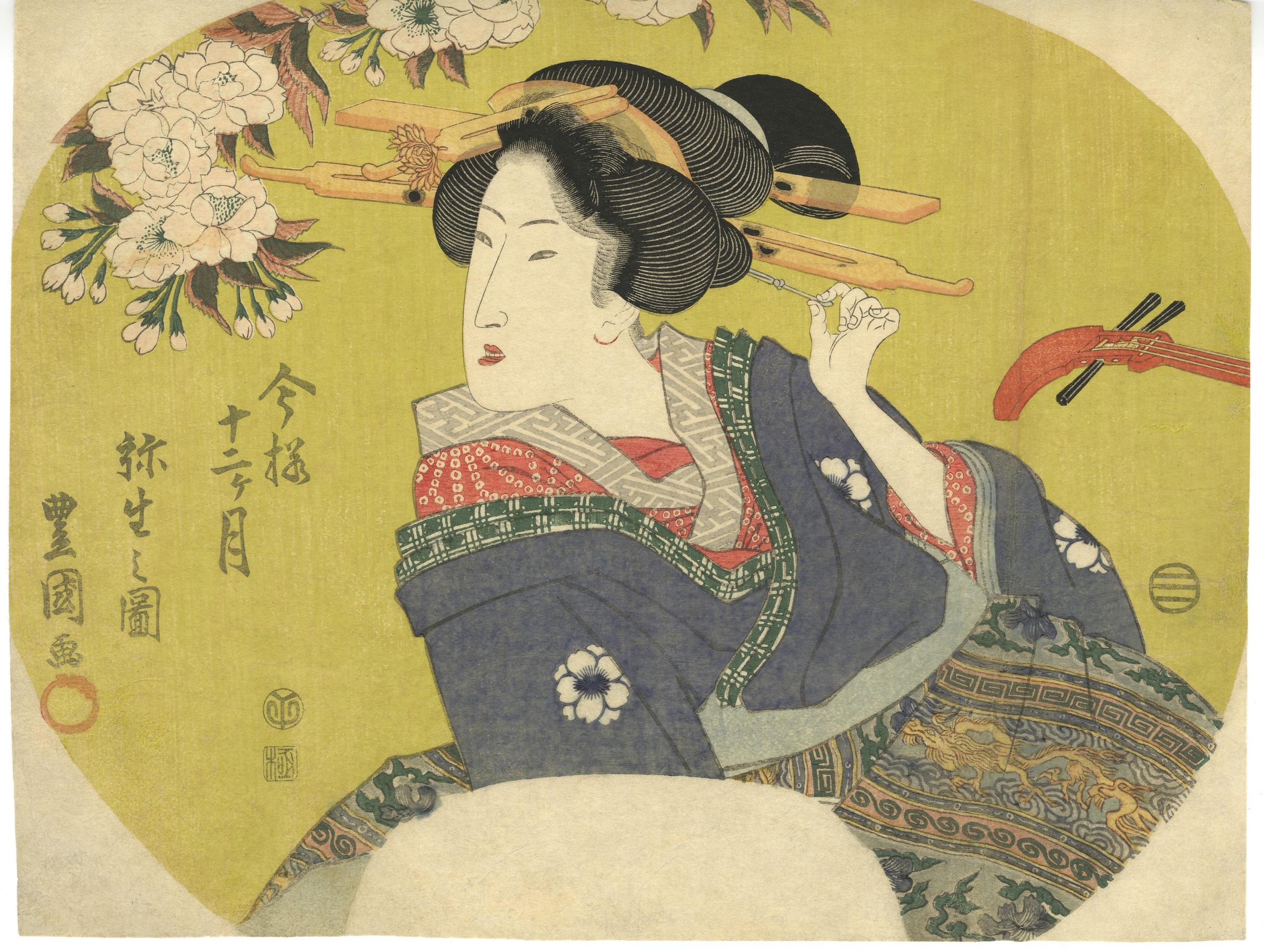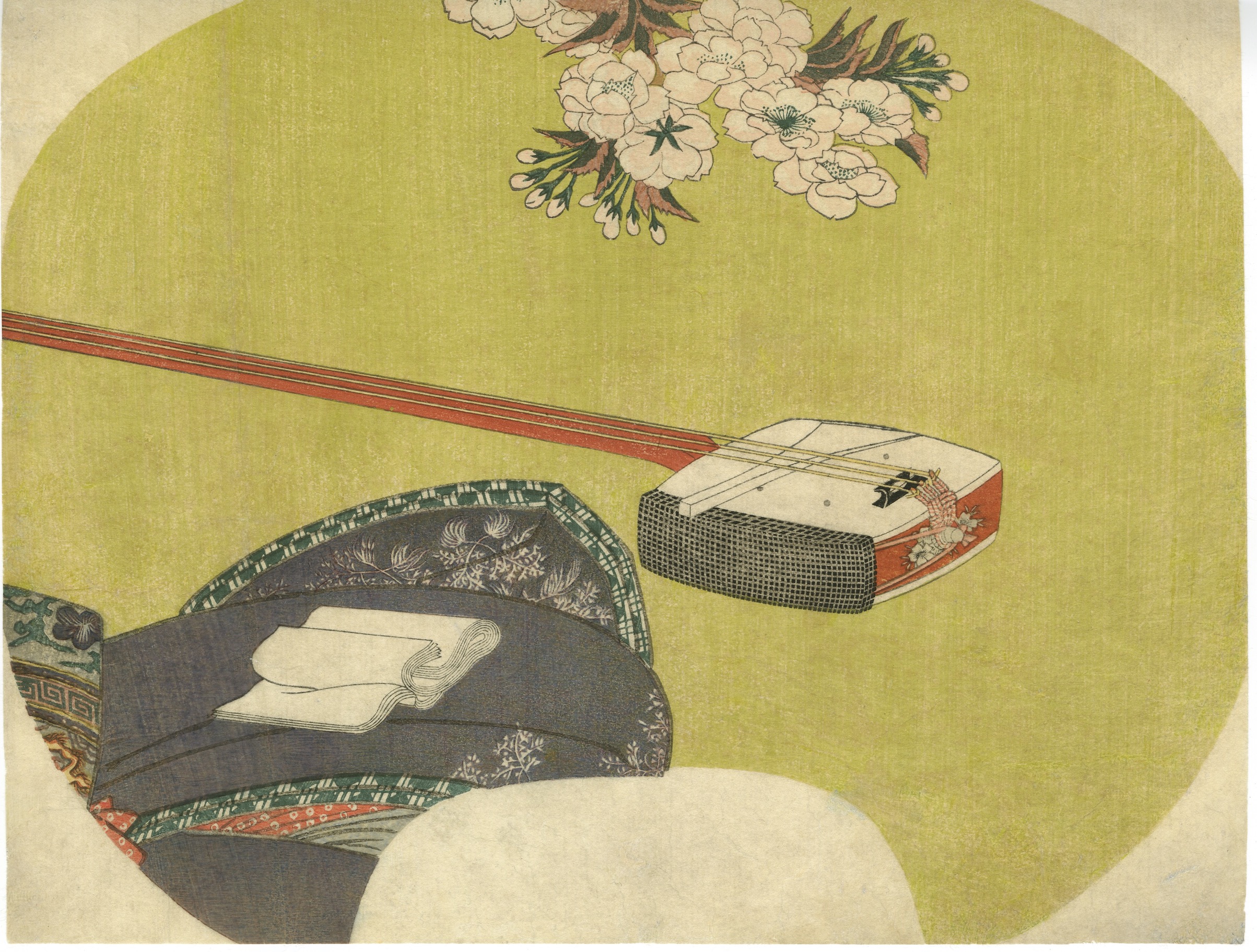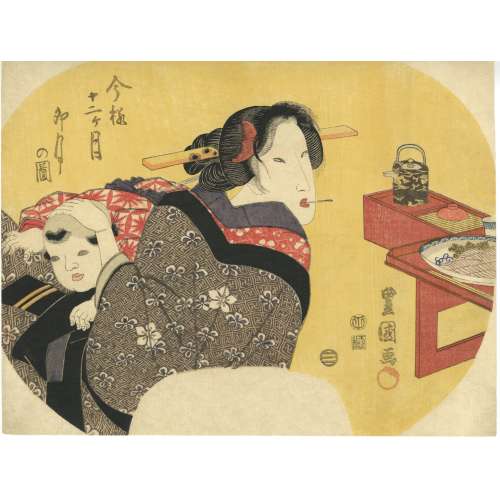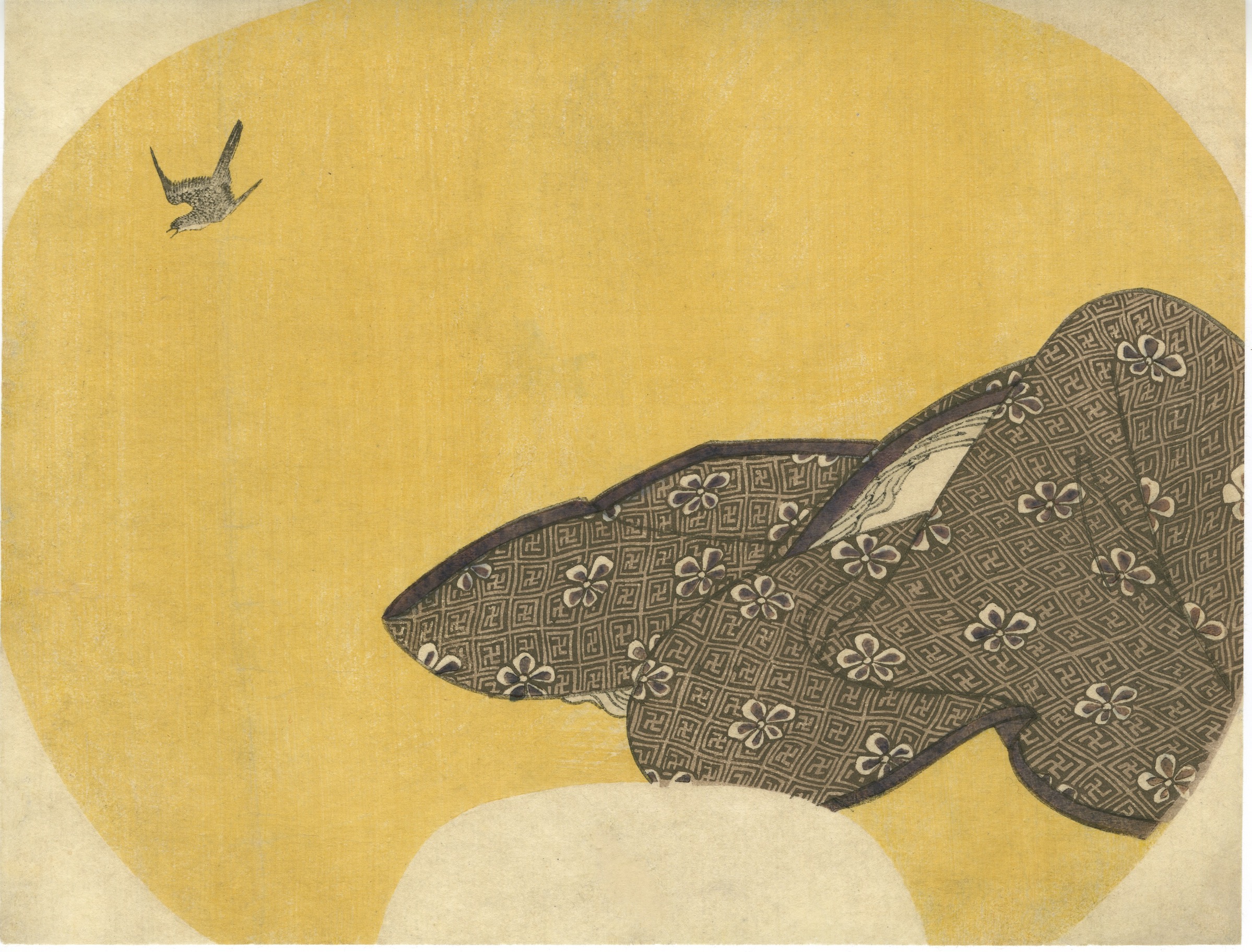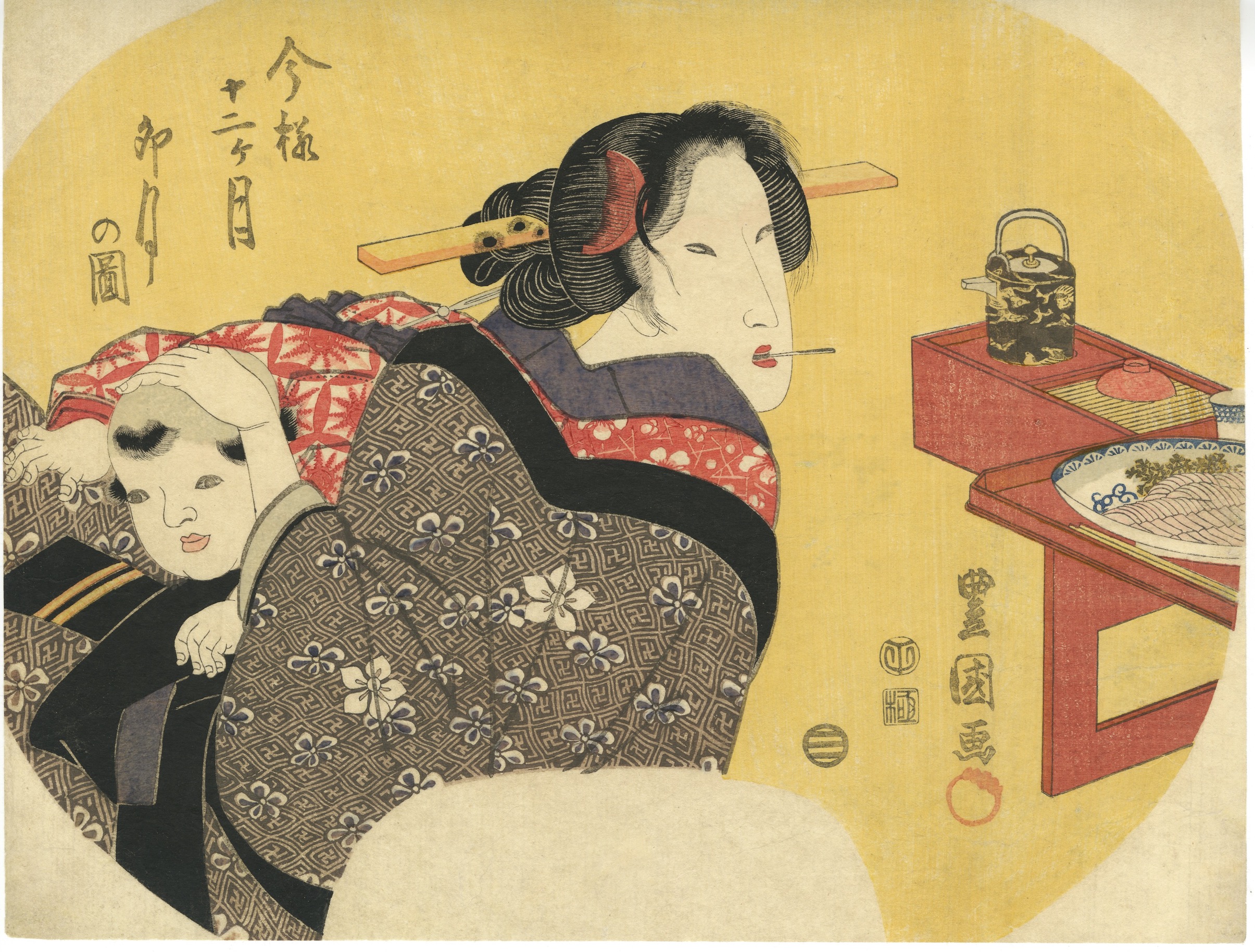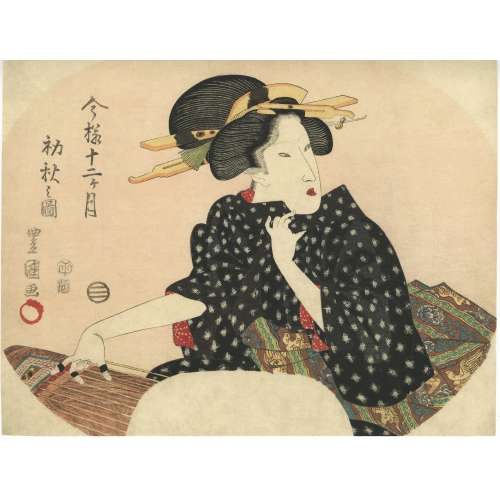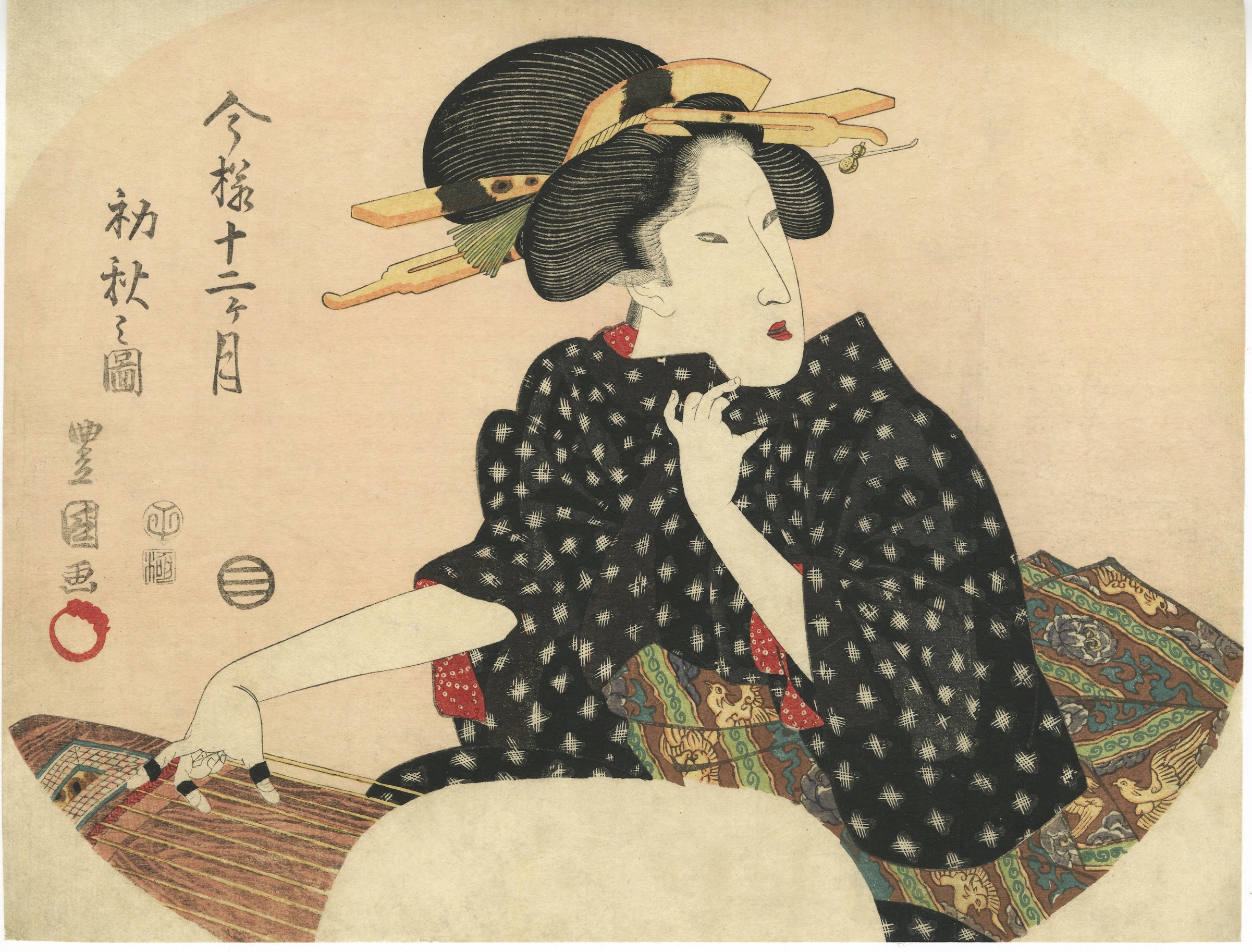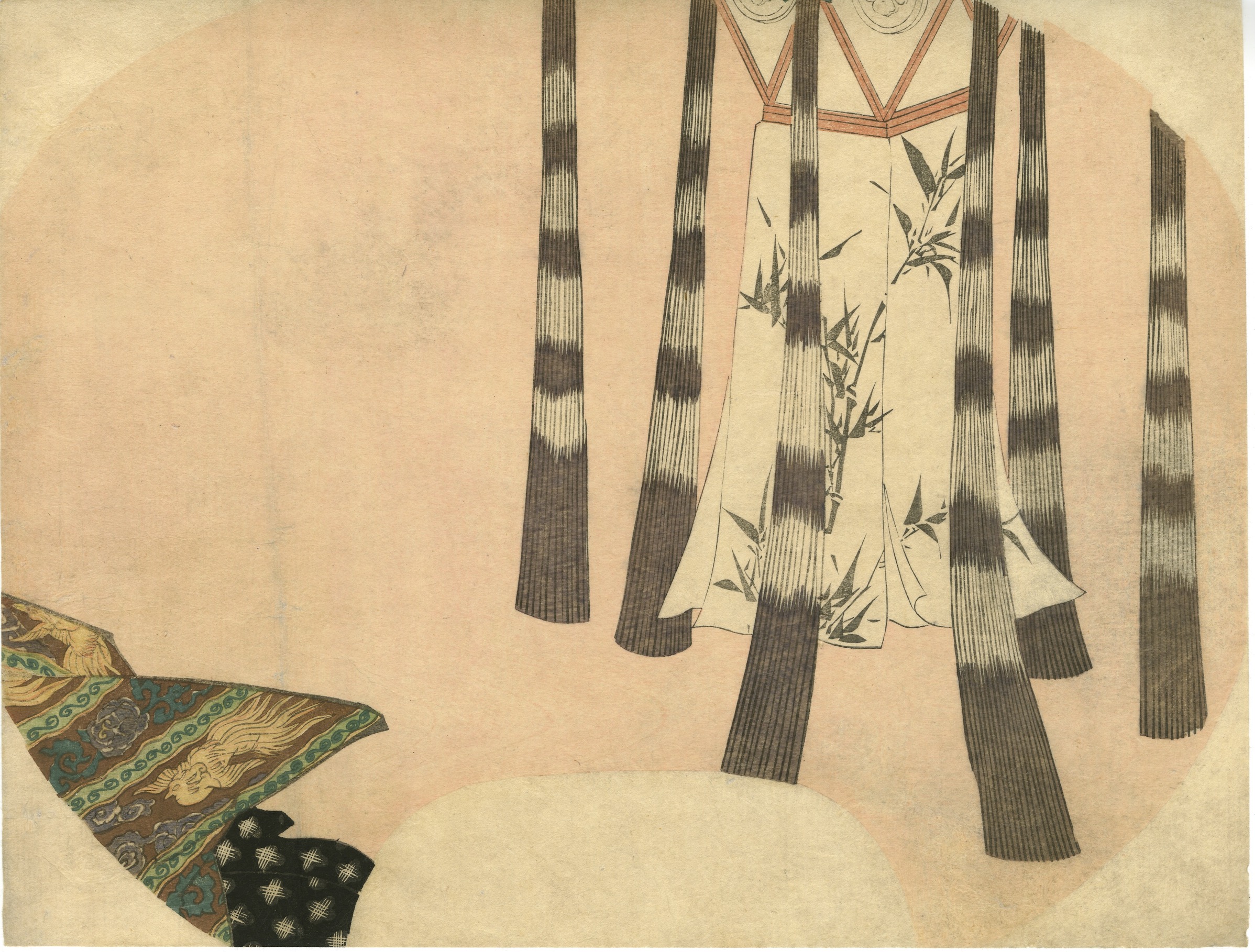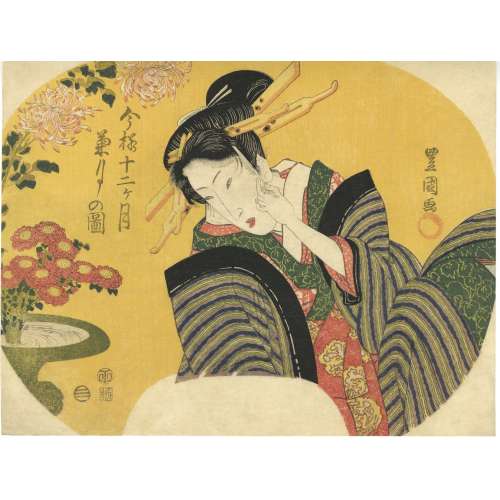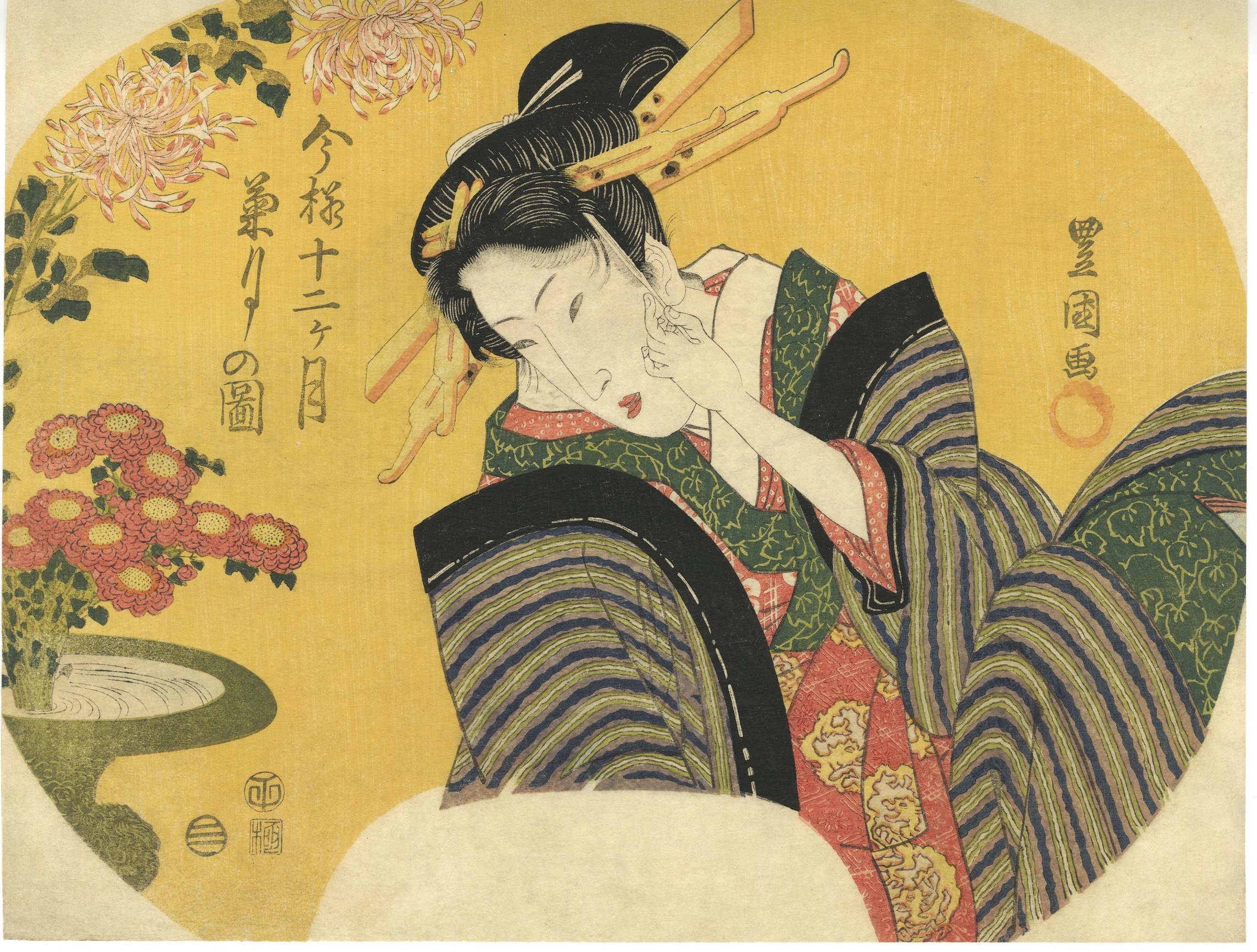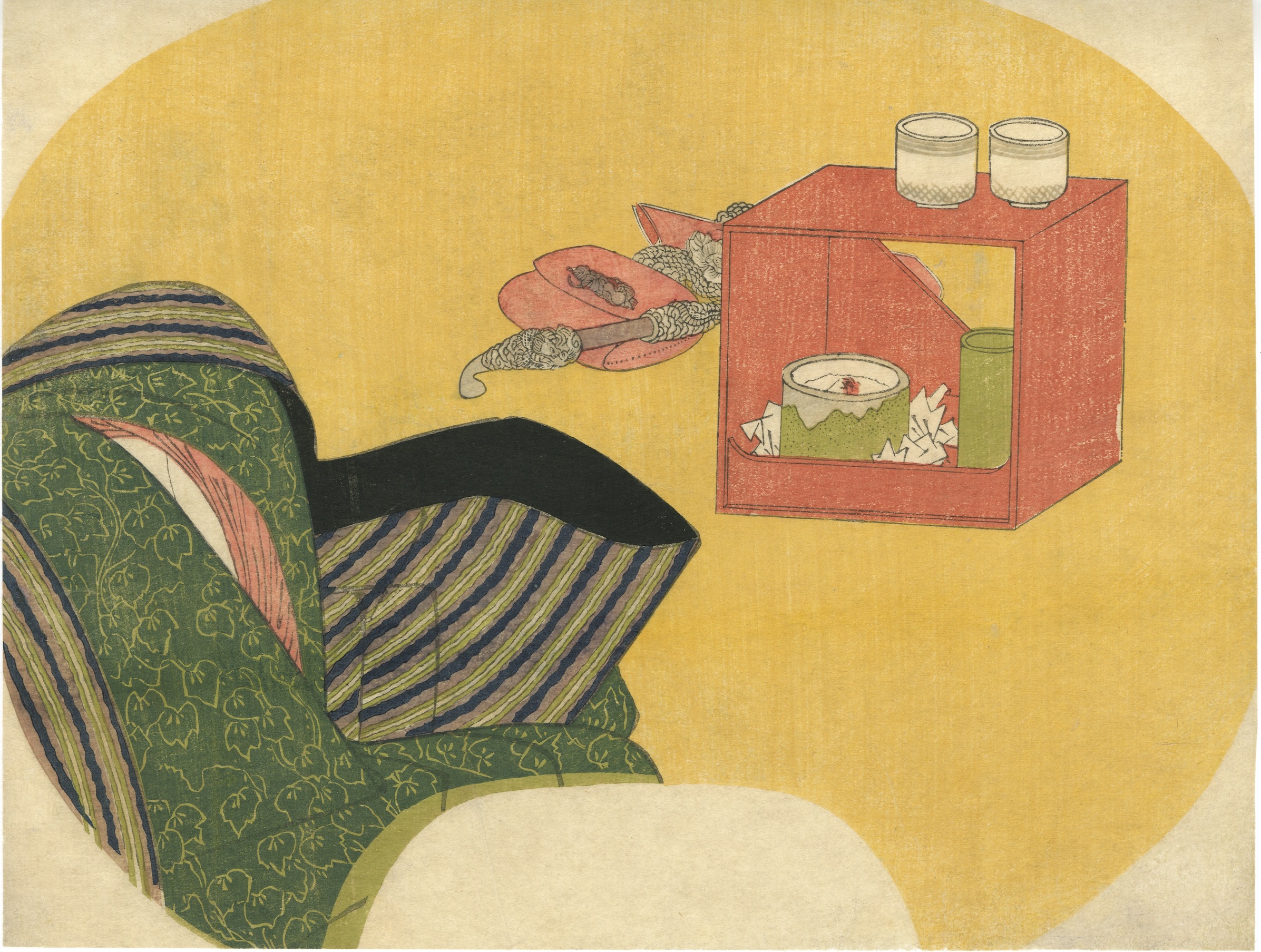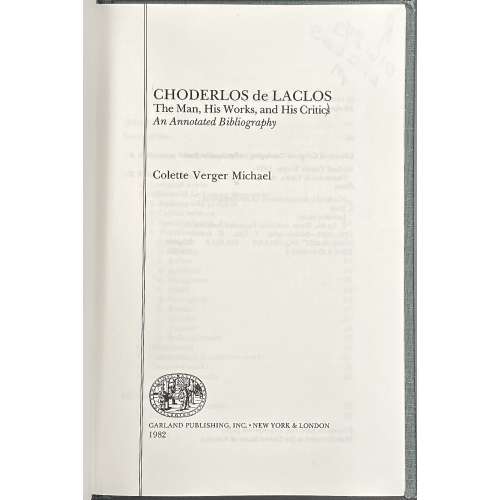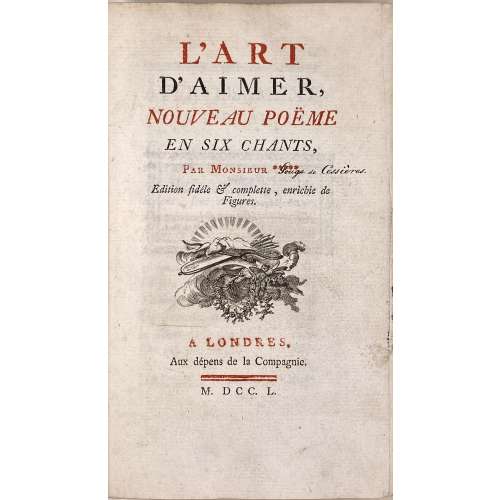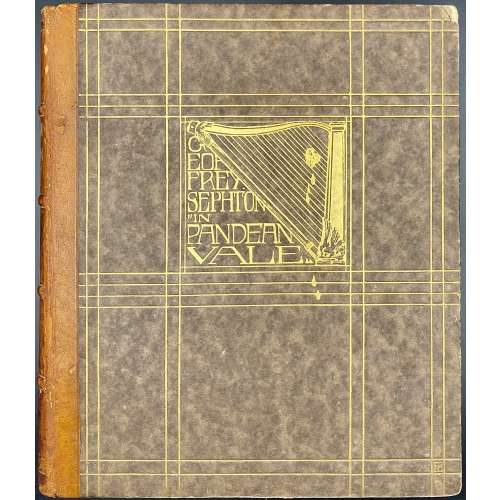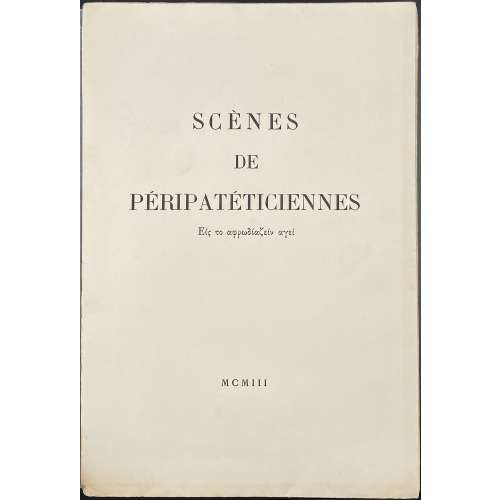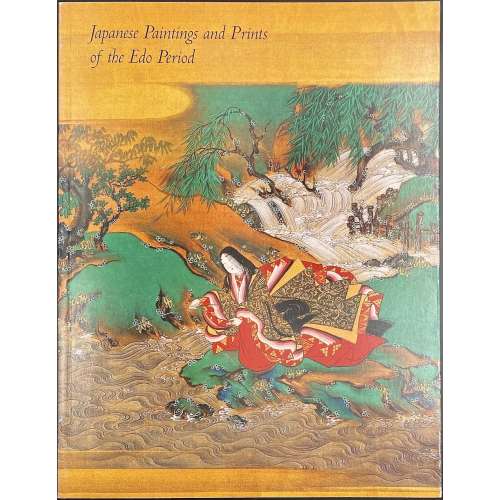Artist: Utagawa Kunisada [歌川 国貞] a.k.a. Utagawa Toyokuni III [三代歌川豊国] (Japanese, 1786 – 1865).
Artists signature:
Kunisada ga [国貞画] in a red double-gourd cartouche.
Character: Kabuki actor
Ichikawa Danjūrō VII [七代目 市川 團十郎]; other names: Ichikawa Ebizō V, Ichikawa Shinnosuke I (Japanese, 1791 – 1859).
Series: Six choice modern flowers [當世六花撰] (
Tosei rok’kasen).
No publisher's seal, no date or censor's seal is present.
Size: Fan print (aiban uchiwa-e); 232 x 289 mm.
Provenance:
Paul F. Walter.
Izzard: "... six prints make up this set of fan prints, which compares contemporary artists with classic poets, in this case, Ichikawa Danjūrō VII with
Ōtomo no Kuronushi [
大友 黒主] (Japanese, dates unknown)".
Rok'kasen [六歌仙] – six poetry immortals.
According to Izzard, identification of the portrayed person is made possible by
mimasu-mon [三升] on the robe, scrolling peony on the back of the mirror, and cloth decorated with the characters
Yauan, one of the actor's poetry names, and other signs and symbols, including the inscription of the acter's guild name
Naritaya. The absence of the publisher’s emblem and censorship seals may indicate that this was a privately issued print, not for public use.
Ref: (1) [
LIB-2967.2022] Utagawa Kunisada (1786 – 1865): His world revisited / Catalogue № 17, Exhibition March 17-21, 2021. — NY: Sebastian Izzard, LLC., 2021; p. 130-1, fig. 42). (2)
Lyon Collection.
Mimasu-mon, or Mitsumasu, is the Ichikawa Danjūrō family crest – three wooden measures, nested square boxes.

